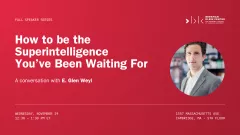I write and teach about the history, theory, and social life of media and communication technologies, from the early nineteenth century to the present. I originally trained in comparative literature and film studies, working in German, French, Spanish, and Mandarin Chinese. More recently, I have focused on data-driven technologies, particularly social media and marketplace platforms, as well as on new developments in artificial intelligence and machine translation.
My first book, Labor of Love: the Invention of Dating (2016), countered widespread claims that the rise of mobile phones and apps were bringing about the “death of romance,” showing that modern courtship practices have consistently coevolved with consumer capitalism and gendered work. Labor of Love has been translated into six languages and appeared in dozens of outlets including The New Yorker, The New York Times, The Economist, The Washington Post, The Atlantic, The Guardian, The Wall Street Journal, NPR, CNN, and HBO. My second book, co-edited with Ben Tarnoff, was Voices from the Valley: Tech Workers Talk About What They Do and How They Do It (2020). A series of long-form anonymous interviews with workers at every level of the Bay Area tech industry, from startup founders to cafeteria workers and in-house massage therapists to Google engineers, it received positive reviews from The New York Times, Wired, The Nation, and the Los Angeles Review of Books, among other outlets, and was named one of Wired‘s “8 Best Books About Artificial Intelligence to Read Now.” It has been translated into Korean. My current research falls into two major streams. The first centers on transnational online marketplaces such as Amazon and Alibaba.
My book in progress, tentatively entitled Third Party, explores marketplace platforms from the perspectives of merchants, software and service providers, investors and other “complementors” who use and, thus, co-constitute them, attending to the forms of communication that these technologies mediate and the imaginaries of “the global” that they sustain. My second research stream concerns the history of intellectual exchange between critical theorists, computer scientists, and other practitioners, with a focus on forms of conservatism and nationalism that are often perceived as antithetical to digital networks, yet increasingly prevalent in digital technology industries. Over the past few years I have published several articles on these subjects, as well as on conspiracy theories and “disinformation.” I am excited about collaborations that bring together quantitative and qualitative methods as well as critical and creative practices, and I am strongly committed to building knowledge with interlocutors beyond the academy.
Alongside my scholarly work, I am a cofounder Logic magazine and the Logic Books series. I also regularly contribute to general interest publications including The New York Times, The Guardian, and The New Republic. Prior to joining the Comp Lit Department, I was an Assistant Professor of Media and Communication Studies at Northeastern University and held fellowships at the Institute for Advanced Study in Princeton, the Data and Society Research Institute, and the Harvard Society of Fellows.



